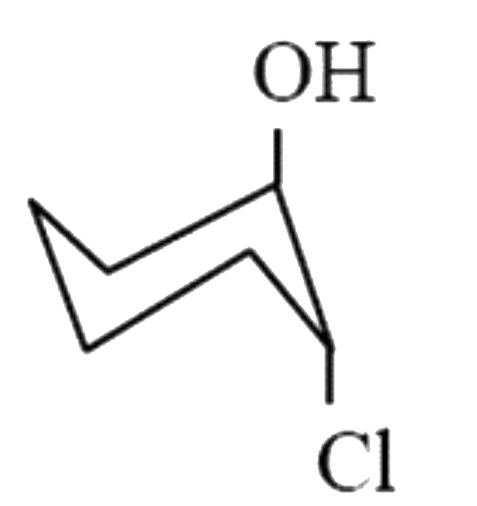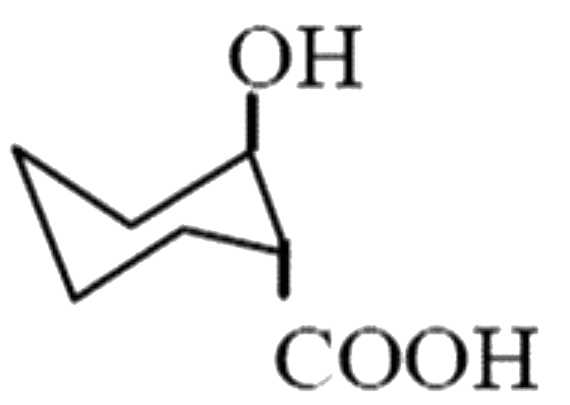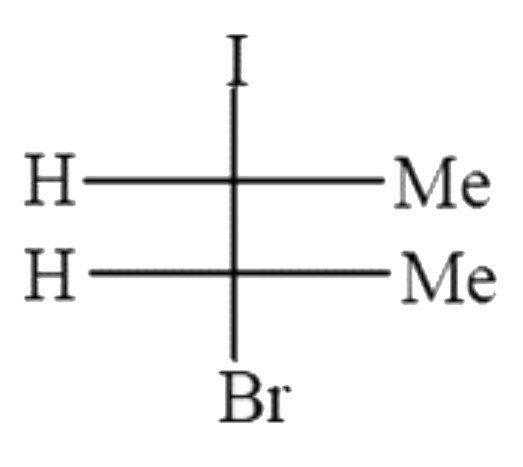NGP (neighouring group of participation) assistance for SN2 reaction will not be seen in -

CH3−S−CH2−CH2−Cl


The correct Answer is:C
To determine which reaction will not exhibit neighboring group participation (NGP) assistance in an SN2 reaction, we need to analyze the conditions required for NGP to occur.
1. Understanding NGP: Neighboring group participation (NGP) occurs when a nucleophile from a neighboring group attacks the electrophile (the carbon attached to the leaving group) during an SN2 reaction. For this to happen, two conditions must be satisfied:
- There must be a good leaving group (e.g., Cl, Br, I, H2O, etc.).
- There must be a neighboring atom or group with a lone pair of electrons that can act as a nucleophile.
2. Analyzing the Options:
- Option A: Contains a good leaving group (Cl) and a neighboring group with a lone pair (e.g., an alcohol or amine). This can participate in NGP.
- Option B: Also has a good leaving group (Cl) and a neighboring sulfur atom with a lone pair. This can also participate in NGP.
- Option C: Lacks a good leaving group. The presence of an OH group does not suffice as it is not a good leaving group. Therefore, it cannot participate in NGP.
- Option D: Contains two leaving groups (I and Br). Iodine is a good leaving group and can leave, while bromine can act as a nucleophile. This can also participate in NGP.
3. Conclusion: Since option C does not have a good leaving group, it will not show NGP assistance for the SN2 reaction.
Final Answer:
The reaction that will not show NGP assistance for the SN2 reaction is Option C.
- There must be a good leaving group (e.g., Cl, Br, I, H2O, etc.).
- There must be a neighboring atom or group with a lone pair of electrons that can act as a nucleophile.
- Option A: Contains a good leaving group (Cl) and a neighboring group with a lone pair (e.g., an alcohol or amine). This can participate in NGP.
- Option B: Also has a good leaving group (Cl) and a neighboring sulfur atom with a lone pair. This can also participate in NGP.
- Option C: Lacks a good leaving group. The presence of an OH group does not suffice as it is not a good leaving group. Therefore, it cannot participate in NGP.
- Option D: Contains two leaving groups (I and Br). Iodine is a good leaving group and can leave, while bromine can act as a nucleophile. This can also participate in NGP.
The reaction that will not show NGP assistance for the SN2 reaction is Option C.
Similar Questions
Knowledge Check
Rate of SN2 reaction is :
 A(B)>(A)>(C)B(C)>(A)>(B)C(A)>(B)>(C)D(A)>(C)>(B)
A(B)>(A)>(C)B(C)>(A)>(B)C(A)>(B)>(C)D(A)>(C)>(B)Rate of SN1 reaction is :
 AS>Q>R>PBS>R>P>QCP>Q>R>SDS>R>Q>P
AS>Q>R>PBS>R>P>QCP>Q>R>SDS>R>Q>PSN1 reaction is fastest in
ACH3CH2BrBCH3−CH∣Cl−CH3CCH3−CH3C∣∣CH3−ClDCH3−CH∣CH2∣CH3−Cl

_S01_421_Q01.png)